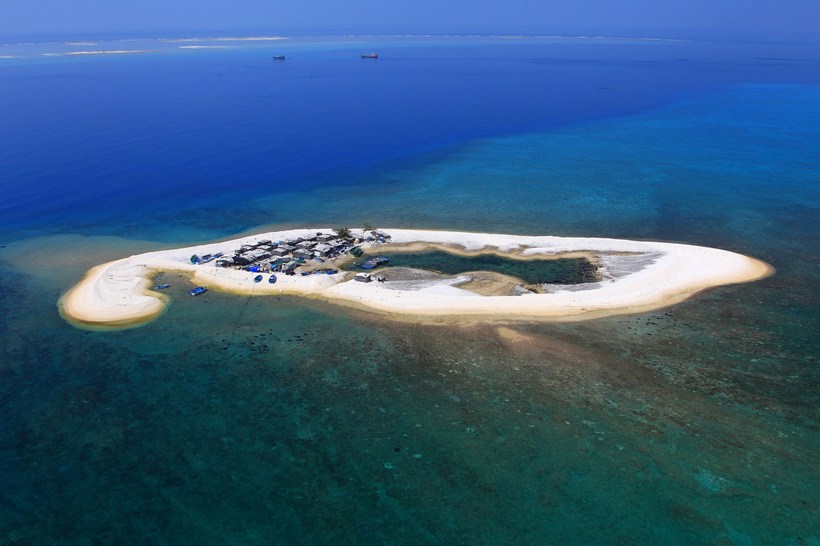Sovereignty is indisputable
- By Yang Zewei
 0 Comment(s)
0 Comment(s) Print
Print E-mail China Daily, May 26, 2014
E-mail China Daily, May 26, 2014
 |
|
Yagong Dao in the South China Sea [File photo] |
A series of recent actions taken by Vietnam to disturb and play up the normal drilling of Haiyang Shiyou 981, an oil rig owned by China National Offshore Oil Corporation, in the waters off China's Xisha Islands has put tensions in the South China Sea in the spotlight of worldwide attention.
Hanoi should know that such drilling in the said area is China's sovereign right endowed by the United Nations Convention on the Law of the Sea.
First, the Xisha Islands have been a Chinese territory since ancient times. Available historical documents record that Chinese people first discovered the South China Sea islands in the Han Dynasty (202 BC-AD 220) and also gained an initial knowledge about the South China Sea. With the progress of the navigation technology and the invention and wide use of compass, the navigation and activities of Chinese people at sea tended to be more frequent from the Song Dynasty (960-1279). Since then, South China Sea islands and adjacent waters have not only become a wide area for Chinese people to engage in production and commercial activities, but have also become an important water area for China's navy forces to patrol and defend. In AD 971, Zhao Kuangyin, the founding emperor of the Song Dynasty, began organizing a patrol naval squad, whose regular cruises and patrols in the South China Sea established China's jurisdiction over the Xisha Islands. In 1279, Kublai Khan, the founding emperor of the Yuan Dynasty (1271-1368), sent General Guo Shoujing to the South China Sea for the inspection and research of the sea's geography and landscape to offer security guarantees for the cruising imperial naval force. Afterwards, the Ming (1368-1644) and Qing (1644-1911) dynasties both put the South China Sea islands and adjacent waters under their jurisdiction, and it has ever since become a common practice for China's naval forces to make inspection tours for coastal defense and exercise sovereignty over them. There were also countless maps, archives, documents and logs reserved from the Ming and Qing dynasties that recorded the South China Sea islands.
The traces of Chinese people's activities from ancient times have also left numerous remains of historical relics there. Aside from the sites of historical relics, quite a few stone tablets erected during the Qing Dynasty and the Republic of China (1912-1949) on South China Sea islands and reefs to maintain and declare China's sovereignty over them have also been excavated. Most of these stone tablets were the monuments of then Chinese government officials or military officers who landed on these islands or reefs for inspections.
During the period of the Republic of China, the Chinese government took a series of active measures maintaining its sovereignty over the South China Sea islands, including the renaming of islands and reefs at the sea, including the Xisha Islands, by the government agency in charge of maps censorship. After World War II, China resumed its exercise of sovereignty over the South China Sea islands in accordance with the spirits of a series of international documents, including the Cairo Declaration and Potsdam Proclamation. From November to December 1946, the government of then the Republic of China sent Yongxing, Zhongjian, Taiping and Zhongye warships to the South China Sea for taking over the sovereignty of Xisha, Dongsha, Zhongsha and Nansha islands that had been grabbed by Japan during World War II. In February 1948, the government of the Republic of China published an official map, The Location of South China Sea Islands, which explicitly marked South China Sea islands, including the Xisha Islands, as a part of China's territory.






Go to Forum >>0 Comment(s)